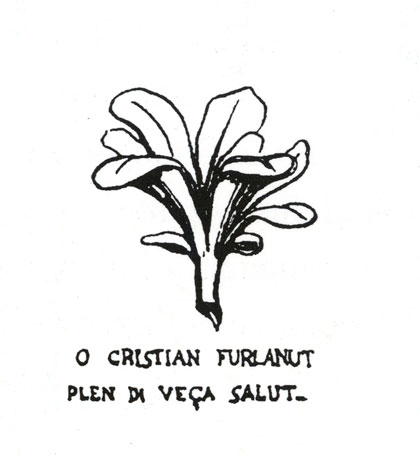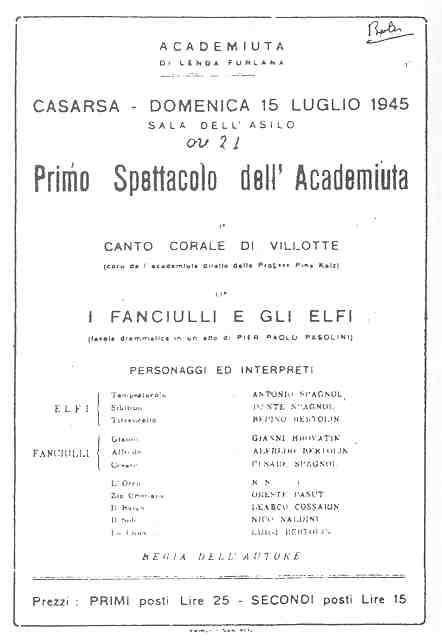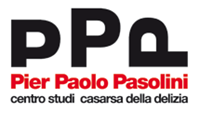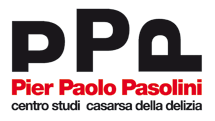
On February 18th 1945 Pasolini and his friends (enthusiastic readers of Graziadio Isaia Ascoli, the writer who claimed the linguistic autonomy of the Friulian language) founded the Academiuta di lenga Furlana, a sort of rustic literary salon, for the promotion of the friulian language, giving the linguistic and literary dignity to a vernacular oral tradition. The first meetings of the Academiuta set on Sunday afternoons in Versuta. The meetings consist on reading poems and lines written by the young academics and by Pasolini itself, followed by the listening of tracks played by the violinist Pina Kalc and animated debates. Pier Paolo, thanks to his natural eloquence, used to guide the meetings. The two Stroligut di ca da l’aga of 1944 are the early works of the Academiuta. The writers who contribute to the two books became members of the association; they were: Cesare Bortotto, Riccardo Castellani, Nico Naldini, Federico de Rocco, Pina Kalc, Virgilio Tramontin and some scholars of the pasolinian school.In the August of the same year the first official edition of the Strilogut n° 1 was published. It presented a different format compared to the previous one: under the headline was added the emblem of the Academiuta: a head of ardjlut (valerian) designed by the friend and painter De Rocco, and the motto -O cristian Furlanut, plen de veça salut- My Dear little Christian fromFriuli, full of authentic health.Here is the Academiuta’s constitutive text that opens the headlines:
[blockquote author=”Pier Paolo Pasolini – “Stroligut” n.1″ link=”” target=”_blank”]Il Friuli si unisce, con la sua sterile storia, e il suo innocente, trepido desiderio di poesia, alla Provenza, alla Catalogna, ai Grigioni, alla Rumenia, e a tutte le Piccole Patrie di lingua romanza. L’Academiuta ha una storia brevissima.[/blockquote]
The following number of the Strilogut was published in 1946. Pasolini explained that:
[blockquote author=”Pier Paolo Pasolini – “Stroligut“ n.2″ link=”” target=”_blank”]Nell’epigrafe dell’Academiuta «cristiàn» è chiamato il friulano (furlanùt, l’affettuoso diminutivo), come lingua rimasta intera presso le origini del “cristiano”, quando la nuova religione albeggiava sull’Europa insieme al romanzo. E «plen di veça salut» può essere attributo di quella favella le cui parole, udite dalla viva voce, trasportano con sé in un paesaggio simile a questo, ma al di là di dieci secoli, in un’epoca inconsumata della coscienza, quando simili parole, sia nel latino argenteo sia nella zona ignota del preromanzo, indicavano cose e fatti di una verginità sicura, investiti dalla recentissima religione. L’isola linguistica non serba dunque solo i caratteri arcaici della lingua come dato fisiologico, ma quando quest’isola si collochi nel tempo oltre che nello spazio, ne serba la forma interiore.[/blockquote]
The experimentalism of Pasolini was born from the mixture between a strong creative impulse and the aim to embrace both individual and common background in a poetical way. The deep sorrow for the terrible death of his brother Guido, made this task more urgent and necessary, so that Pasolini felt the need to become involved in the political life.




